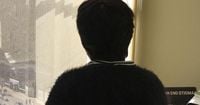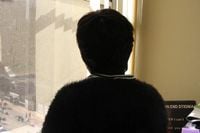On a balmy Johannesburg evening, a wave of anxiety swept through the city’s sex worker community. Word spread quickly that within the next 24 hours, several nonprofit clinics offering free HIV services would be shutting their doors. The cause: President Donald Trump’s announcement that the United States would be slashing foreign aid to South Africa, a move that sent shockwaves through the communities most at risk. As some South Africans living with or at risk of HIV scrambled to secure a last-minute supply of life-saving medication, others found themselves left out in the cold, unsure of where to turn next.
According to reporting by The Associated Press, the closure of 12 U.S.-funded clinics across the country left more than 63,000 people without their regular source of treatment. In total, up to 220,000 individuals reliant on daily HIV medication faced disruption. For South Africa—the country with the highest number of people living with HIV in the world—the timing couldn’t have been worse. The government, facing the sudden withdrawal of about $427 million in U.S. support, vowed it would not let the world’s largest HIV program collapse. But the challenge of filling such a massive funding gap loomed large.
The impact was felt most acutely among South Africa’s most vulnerable: sex workers and transgender people, many of whom already faced stigma and discrimination in both their personal lives and the healthcare system. For these groups, the clinics had provided not just medication, but a rare sense of security and acceptance. Now, even that was slipping away.
One 37-year-old HIV-positive sex worker and mother of three, who requested anonymity for fear of retaliation, described her ordeal to The Associated Press. After being turned away from public hospitals, she went nearly four months without medication. "The only thing that I could think of was my kids, and that I am going to die, and how am I going to explain to my kids that I am sick because of the line of work that I chose?" she said. Eventually, she received a month’s supply from a mobile clinic that had been introduced as a stopgap after the funding cuts. But with no guarantee of future access, she was left in limbo, uncertain about her next steps.
Others faced even tougher choices. Another HIV-positive sex worker told The Associated Press she had resorted to buying medication illegally on the black market, where prices had nearly doubled—reaching about $25 per bottle. For many, the cost was prohibitive and the quality of the drugs uncertain, adding another layer of risk to an already precarious situation.
The U.S. government did issue a limited waiver allowing the resumption of certain life-saving HIV services globally in the months after the cuts, but for many South Africans, the damage had already been done. Healthcare workers and activists warned of the potential for hundreds of thousands of new infections and tens of thousands of additional deaths in the coming years if the funding shortfall was not addressed. The withdrawal of regular healthcare also meant that many people were no longer being tested, leaving them unaware of their viral load—and whether they could transmit the virus to others.
Accessing medication through public hospitals and clinics proved challenging for those displaced by the clinic closures. Bureaucratic hurdles abounded. The 37-year-old sex worker recounted, "I have tried local clinics, three of them, and I have been refused treatment because I don’t have a referral letter from my previous clinic." Yet, as Kate Rees, a public health specialist at the Anova Health Institute in Johannesburg, explained, such referral letters are not required by policy. "But people at the clinic, whether it’s nurses, security guards, doctors, whoever actually, do turn them away," Rees told The Associated Press. When asked about these reports, Foster Mohale, spokesperson for South Africa’s health department, said they were not aware of anyone being turned away and encouraged people to seek help at their nearest public health facility.
Discrimination added another barrier, particularly for sex workers and transgender individuals. One transgender woman shared her experience: "In hospital, they said they only give PrEP to people who are in a relationship with someone who’s HIV-positive and trying to have a baby." Frustrated and humiliated, she decided to buy her medication privately and moved in with her mother to save money. "I am not going back to the clinic, with people who are going to make fun of me, like I’m a clown," she said. The health department did not respond to questions about discrimination in clinics.
For those unable to afford private or black-market medication, the options are few. The withdrawal from regular healthcare services means that many sex workers and others are not being tested, leaving them in the dark about their health status and the risk they pose to others. Even before the U.S. aid cuts, about 2 million of South Africa’s estimated 8 million people living with HIV were not on medication. Some lacked the time or money to travel to clinics; others were in denial or had yet to be diagnosed. Now, that number is on the rise.
Yvette Raphael, co-founder of the Advocacy for Prevention of HIV and AIDS group, voiced the fears of many activists. "We are scared that we are going to see people dying again," she said. The sentiment echoes across Africa, the continent most affected by the U.S. aid cuts.
Defending the decision to reduce aid, the Trump administration cited the United States’ rising debt and argued that African nations must begin to absorb more of the burden for their own healthcare. "And we’re $37 trillion in debt. So at some point, the continent of Africa needs to absorb more of the burden of providing this health care," Russell Vought, director of the U.S. Office of Management and Budget, said during a June hearing.
Among some South Africans, there is speculation that the policy shift may have been influenced by figures such as Elon Musk, who is originally from South Africa and reportedly oversaw early efforts to cut U.S. aid. One transgender woman, expressing her frustration, said, "I’ve got no civil words to express how I feel, but I just hate them for what they did. Our lives matter."
Despite the South African government’s assurances that it will not allow the HIV program to collapse, the reality on the ground is one of uncertainty and hardship. Vulnerable communities continue to face high costs, discrimination, and bureaucratic obstacles as they fight for access to the medication that keeps them alive. As the world watches, the stakes could not be higher for the millions who rely on South Africa’s HIV program—and for the global fight against HIV/AIDS itself.
The coming months will test the resilience of South Africa’s healthcare system and the resolve of its government and civil society. For the sex workers, transgender people, and others whose lives hang in the balance, the hope is that help will arrive before it is too late.


